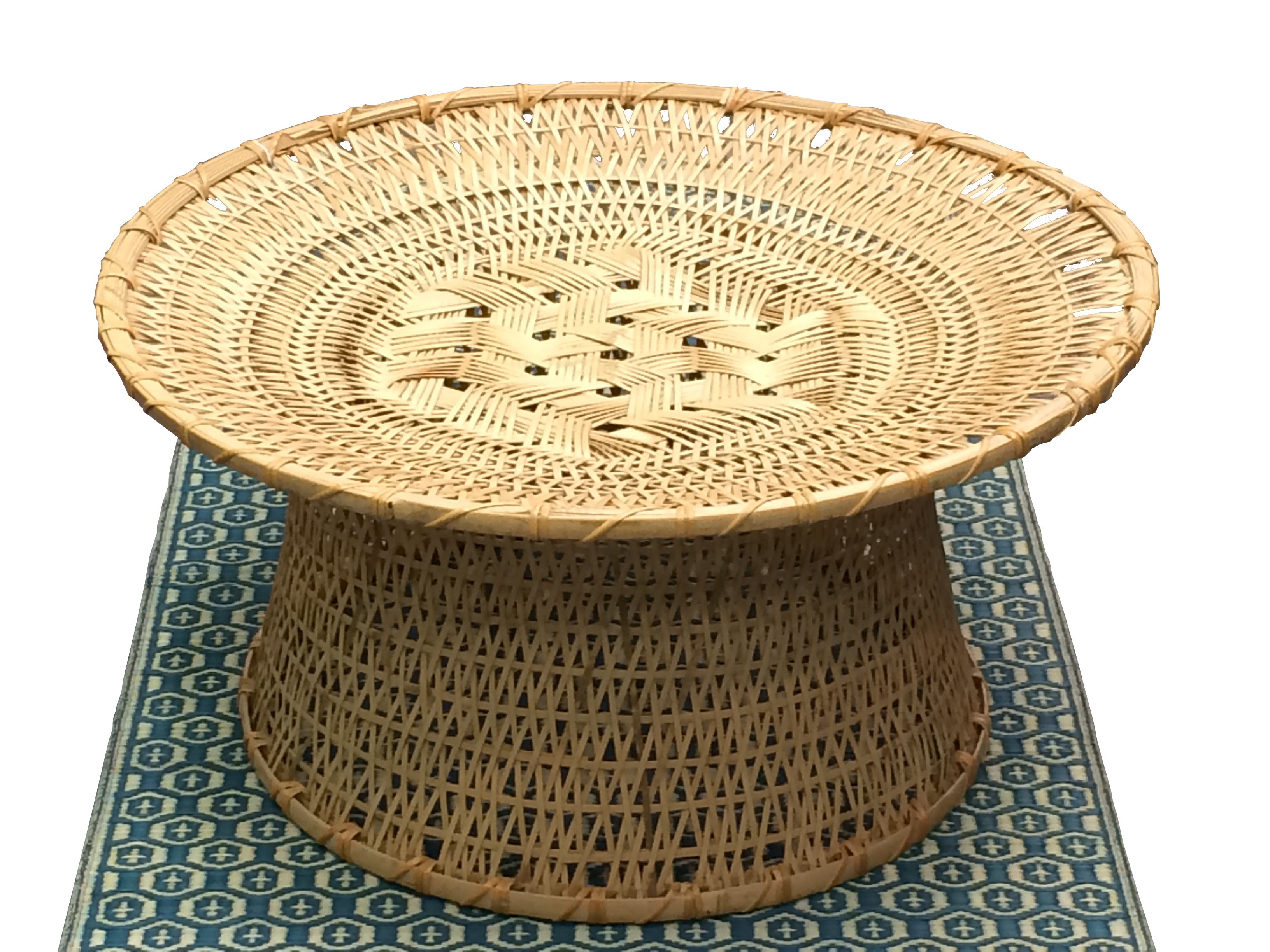In a quiet corner of Tokyo's bustling Ginza district is a shop devoted to Japanese crafts that has been in business since 1933. Among the founding members of Takumi are no lesser personages than Soetsu Yanagi, Kanjiro Kawai and Shoji Hamada — the trio also responsible for founding Tokyo's Mingeikan (The Japan Folk Crafts Museum) in the '30s. With Takumi, their ambition was to establish a shop in the city to promote and sell Japanese rural crafts to sophisticated Tokyoites in order to make people aware of the quality and beauty of such goods.
On a recent visit to the shop, among the many items of ceramic tableware, woven mats, woodblock prints and textiles, I came across a bamboo wickerwork table of astonishing lightness and rarity that was produced by a craftsman in Iwate Prefecture. The table was originally commissioned by Takumi for an annual exhibition of new crafts at the Mingeikan in 2011, in itself an indicator of the robust health of Japanese crafts.
I spoke with Susumu Segawa and Yasuo Takanashi, both of whom have worked in the shop since 1968 and remember meetings with Hamada at an "ex-farmhouse" in Mashiko that had been re-purposed as a ceramic workshop. Segawa recalled one particular winter meeting in an old farmhouse when Hamada never stopped talking while his guests sat shivering with cold, too respectful to complain. Supposedly, female visitors to Hamada's workshop would often come away with a vessel, but there were no such gifts for the men.

















With your current subscription plan you can comment on stories. However, before writing your first comment, please create a display name in the Profile section of your subscriber account page.